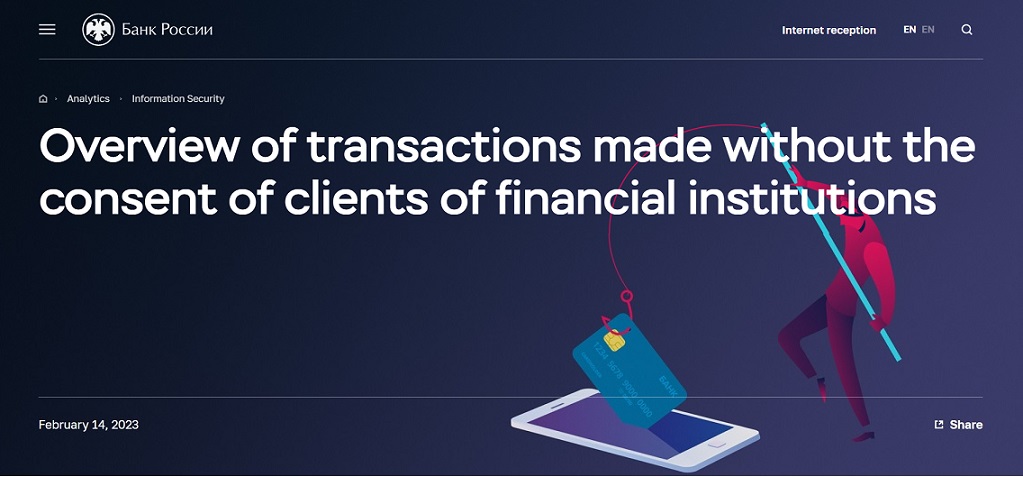
Over the past year, the number of transactions not authorised by customers decreased by 15.31% to 877,000, compared to 2021.
In 2022, the Bank of Russia initiated the blocking of over 756,000 scam phone numbers. „This is over four times more than a year ago, and is the highest number since the work began in 2019”, according to a press release.
The regulator advised banks to suspend remote access to the management of bank accounts for the persons included in the Bank of Russia’s Financial Sector Computer Emergency Response Team (FinCERT) database. These measures helped reduce the number of transactions not authorised by customers. Banks also increased their efforts to counter fraudsters in the payment market.
Despite the active development of new remote payment services and the growth in remittances (by 39%, to 1,458.6 trillion rubles), the damage caused by cyber fraudsters grew only slightly — by 4.29% to 14.2 billion rubles. As in previous years, the biggest number of transactions not authorised by customers occurred while paying for goods and services over the Internet.
However, over the past year fraudsters were less active in this regard and switched to remote banking services — mobile and internet banking. Once they gain access to the services, fraudsters can not only steal money from a person’s account, but can also take out loans in that person’s name. That is why remote banking services suffered the most. The total damage amounted to 9.3 billion rubles.
Banks reimbursed less stolen funds to their customers than a year ago, with a total of 618.4 million rubles, or 4.4% of the total amount of the money stolen. This can be explained by the continued widespread use of social engineering, making people voluntarily transfer funds to fraudsters or disclose banking information.
In addition, in 2022, fraudsters started actively using social networks and mobile applications to steal money. Since February last year, the Bank of Russia has been blocking such resources. In less than one year, nearly 2,000 social media web pages and dozens of mobile applications were blocked, and the total number of resources subject to blocking exceeded 15,000.
In November 2022, the Bank of Russia conducted a survey on people’s satisfaction with the security level of financial services. Based on the survey findings, an average profile of the user most vulnerable to scammers was created.
More information on the results of the survey and the situation with cyber fraud is available in the Review of Transactions Not Authorised by Customers.
Banking 4.0 – „how was the experience for you”
„To be honest I think that Sinaia, your conference, is much better then Davos.”
Many more interesting quotes in the video below: